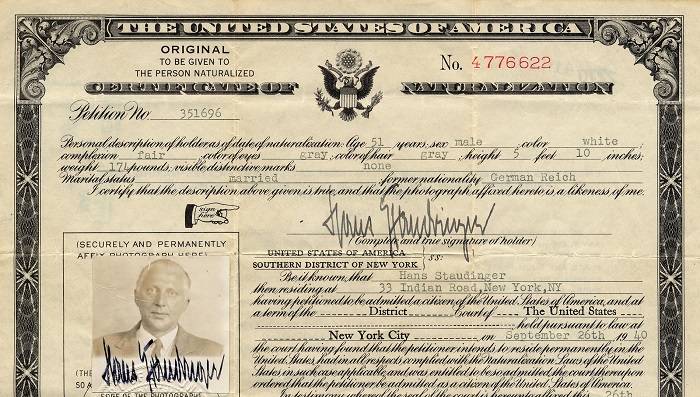Collections : [German and Jewish Intellectual Émigré Collections]
German and Jewish Intellectual Émigré Collections
Personal and professional papers of German-speaking Émigré in the social sciences, humanities, and the arts and the organizations which assisted those who fled the Nazi regime.
Search Constraints
Start Over You searched for: Collecting Area German and Jewish Intellectual Émigré Collections Remove constraint Collecting Area: German and Jewish Intellectual Émigré Collections Level Subseries Remove constraint Level: SubseriesSearch Results
Subseries 1: Articles, Reviews, and Books, 1932-ca. 1990 0.60 cubic ft.
This sub-series contains some of Lowe's published and unpublished studies of economics, sociology, and current affairs. Highlights include a lengthy essay written in the form of a letter to his close friend Hans Jonas, unpublished materials that he apparently drafted while writing Has Freedom a Future?, and a complete typescript of the book itself.
This series has been divided into two sections. The first section contains early published writings of Albert Lestoque, written in German and primarily on the subjects of prison conditions and penal reform, as well as clippings, case files and other research materials used by him to research these topics. The second section of this series contains texts of both lectures and essayistic publications, primarily written by Lestoque in English after immigrating to the United States.
This series contains correspondence (circa 4500 items) with family members, correspondence dealing with the Kotschnig family's immigration and naturalization process, employment, correspondence with colleagues, universities and organizations concerning general educational issues and educational reconstruction in post-war Germany, as well as correspondence concerning Kotschnig's publications. Noteworthy among the correspondents in this series are: Werner Bohnstedt, William G. Carr (Educational Policies Commission), Edna V. Cowell (World Federation of Education Associations), Betty Drury and Stephen Duggan (Emergency Committee in Aid of Displaced Foreign Scholars), Rudolf Heberle, Henry W. Holmes, I. L. Kandel and Paul Monroe (World Federation of Education Associations; co-editors with Kotschnig of World Education), Grayson Kefauver (Liason Committee for International Education), Edward R. Murrow, James W. Parkes, Charles E. Payne, Reinhold Schairer (U.S. Committee on Educational Reconstruction), James T. Shotwell (Carnegie Endowment for International Peace), Ann C. Stewart, Stuart M. Stoke, John W. Studebaker, Frances A. Thomas (Commission to Study the Organization of Peace), Robert Ulich, Seth Wakeman, Harold Weston (Food for Freedom, Inc.), Howard E. Wilson, and George F. Zook (American Council on Education).
